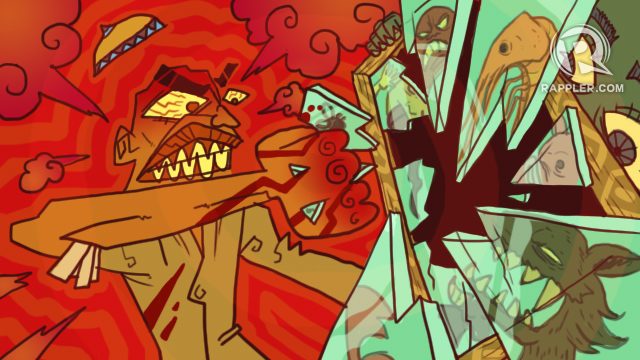SUMMARY
This is AI generated summarization, which may have errors. For context, always refer to the full article.

Many by now have heard of the recent declaration of blogger Nathan Allen, a.k.a. I Dreamed of This, as persona non grata in the province of Sorsogon.
The reason for his plight? A not-so-positive blog post on his website, wherein the blogger recounted a “disappointing” and potentially dangerous experience in Donsol.
As Nathan’s story spread online, the local government of Sorsogon was, of course, quick to react. In just a few weeks, a resolution was filed and approved to make their stance official: Nathan Allen would no longer be welcome in Sorsogon.
This is not the first time something like this has happened. In February, model Xian Lim was declared persona non grata in Albay for refusing a coffee table book; in August 2015 Ramon Bautista received the same fate in Davao. In both cases, the “punishments” were accompanied by much comment from high-ranking officials over Twitter and Facebook.
A quick read of these posts therefore begs the question: should government officials be allowed to make candid posts over social media about such sensitive official business? And do their heated reactions on these online platforms betray the emotional nature of their decisions?
The obsession
No other country does Internet-hissy-fit quite like the Philippines. For every 100 negative mentions of our country on the Web, there are about 5,000 comments “defending the country’s honor.”
No other country seems to react to online criticism like we do. What many don’t seem to realize is that one blogger’s, or even a hundred bloggers’ opinion, of our country is really nothing more than a speck of dust in the Internet wind – one that, with time, grows even smaller as it drifts into the past and gets forgotten.
It can easily be said that these negative opinions would warrant no attention at all were it not for the reaction of Filipinos worldwide.

I believe the answer is as simple as looking to our country’s Internet consumption. It is an oft repeated pop-fact that the Philippines is the social media capital of the world. Social media agency We Are Social averages that 44.2 million Filipinos are active Internet users, that we spend over 6 hours browsing the Internet on our PCs or tablets and over 3 hours on our phones.
The damage control
In the case of Nathan Allen, it seems that many Filipino netizens were able to relate with his frustration. It was Sorsogon’s local government that took the issue to the next level, taking severe action over a non-issue. This, then, is where our social media obsession becomes detrimental to growth. This is where it becomes dangerous.
One of the justifications that the Sorsogon government made for it actions was that because Allen had so many followers, his negative comments would drive tourists away. But when government officials are allowed to react to a simple blog post in the same manner as any Internet user, it is not only a shame for the country. It also deters true dialogue between our country and the international community.
When our government is allowed to react impulsively and emotionally on the Internet, it alienates those we hope to attract through tourism. With that, the government fails to do its duty as a representative of the people.
If these officials truly wanted to make up for one blogger’s negative experience, what they should have done was to invite Allen back to Sorsogon and give him a better experience. But while the quantity of our country’s social media usage is indeed great, it seems some of our government officials have much to learn in terms of quality. Social media is simply too volatile to let public officials simply say all they desire. In the end, Allen is right: our government is the face of our country, and so it’s expected to do its job well. – Rappler.com
Frankie Concepcion is a writer from the Philippines living in the US. She writes at http://frankieconcepcion.tumblr.com/
Add a comment
How does this make you feel?
There are no comments yet. Add your comment to start the conversation.